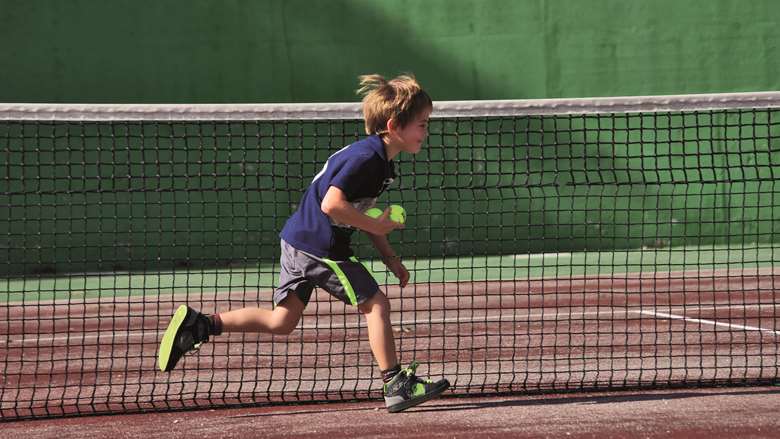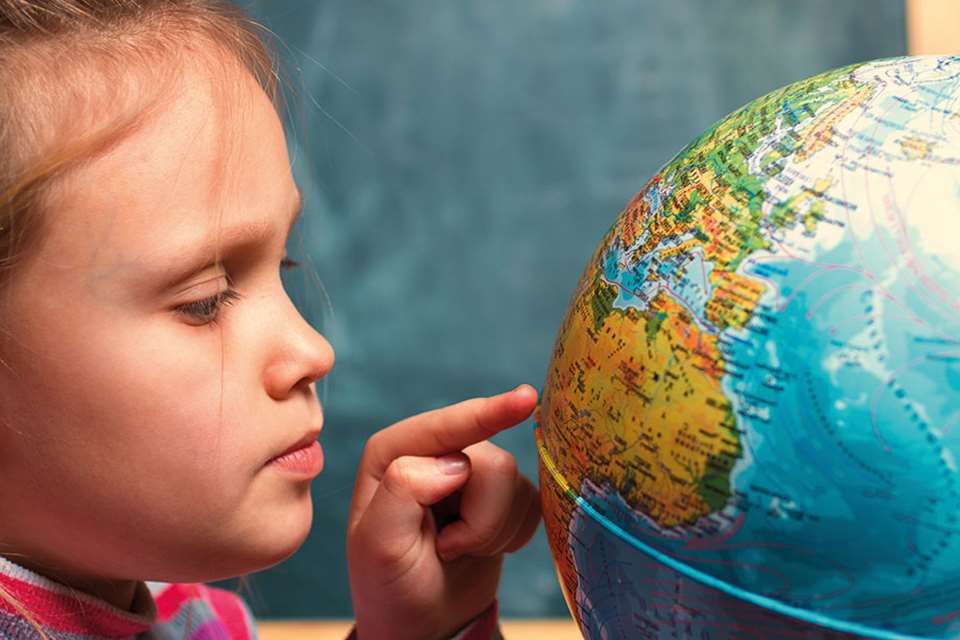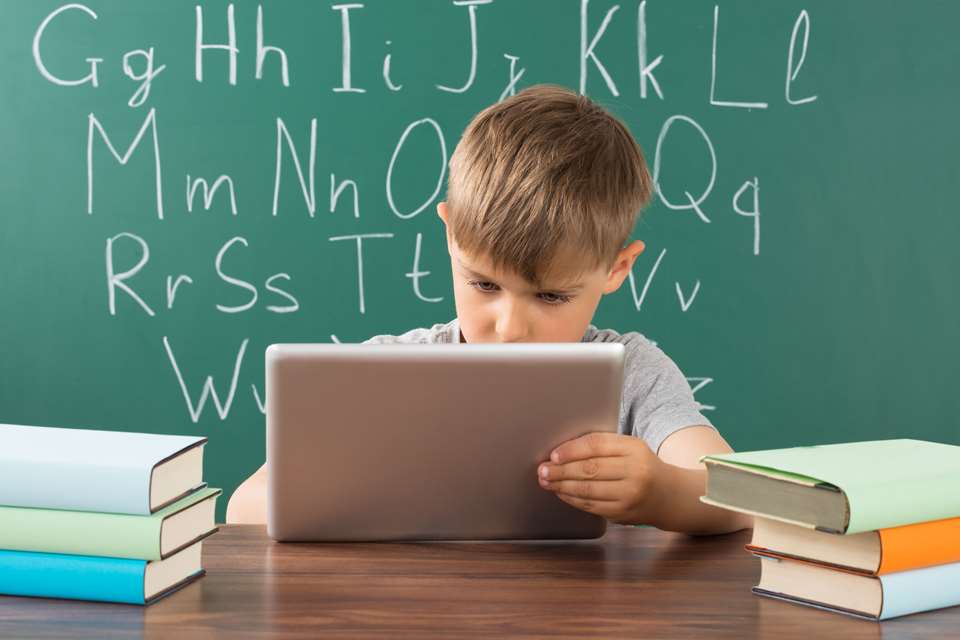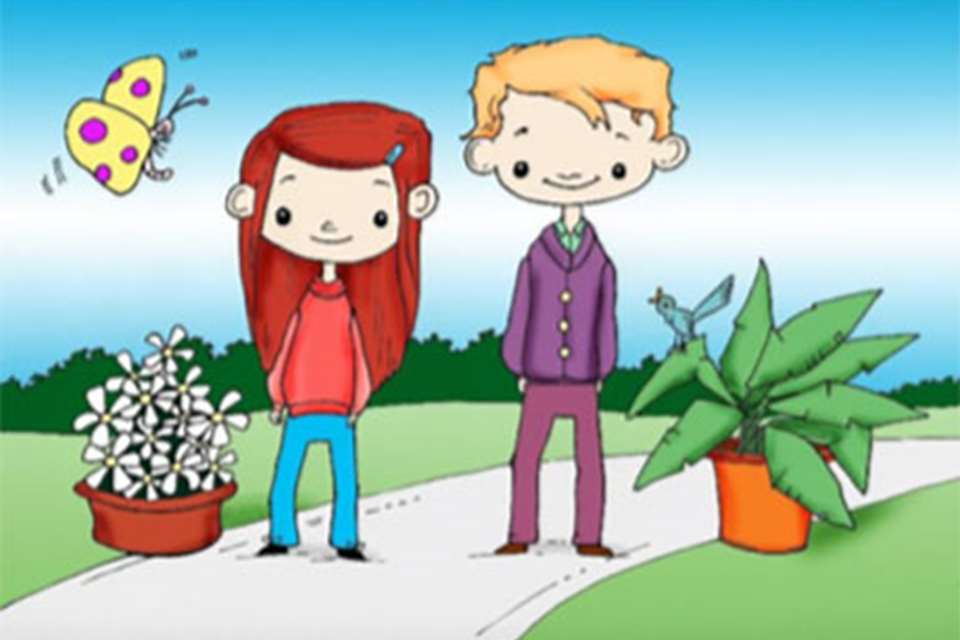International Early Learning and Child Well-being Study: Why some children are running to catch up
Dr Martina Street
Tuesday, April 7, 2020
What can we learn from the OECD’s International Early Learning and Child Well-being Study? Dr Martina Street explains criticisms of the research, findings, and what future studies should focus on

Those of us who work in the early childhood sector know the benefits of good-quality early education. It may have taken time for governments across the world to recognise these benefits, but once they did, their interest and investment have been considerable.
Indeed, the early childhood education sector’s rapid and continued growth in England has been in contrast to cuts in other services, and incomes, that have disproportionately affected economically disadvantaged families with young children.
In this evolving early years policy context, there is also a sense in which children’s educational outcomes at the age of five years are now becoming conflated with notions of well-being, and may appear to be predicated on their achieving stage-specific educational outcomes. It is within this context that the Organisation for Economic Co-operation and Development (OECD) conducted its International Early Learning and Well-Being Study (IELS).
Modelled on the cross-national Programme for International Student Assessment (PISA) of 15-year-olds, IELS was quickly labelled the ‘Baby PISA’ when it was introduced in 2017. Like its older ‘sister’, its objective was to provide participating countries with information that could, apparently, be used to benchmark and monitor the performance of their education systems.
Its authors claimed there was a ‘lack of reliable, valid and comparable international evidence’ that would enable countries to make ‘faster progress on improving children’s early learning experiences’. The IELS intended to address this gap.
INITIAL REACTIONS
While early childhood experts in the UK, and other countries, welcomed opportunities for comparative studies of early education systems, the IELS was nonetheless roundly criticised. Most of the OECD’s 35 member states declined to participate in the study, the exceptions being England, the USA and Estonia. Alongside unease about the OECD’s lack of consultation about the study, there were other concerns about its approach.
Peter Moss, emeritus professor of early education at UCL, described the study as a ‘wasted opportunity’, and lamented what he explained was its ‘mass testing approach, with standardised measures of standardised outcomes…leading to more uniformity and narrowing of early childhood education’.
There were other criticisms too. Professor Moss, along with other early education experts, called for studies that incorporated approaches that ‘acknowledge and are respectful of diversity, complexity and inclusive of the field’s multiple perspectives’.
Counter-arguments
These criticisms were, in turn, countered by the study’s authors who claimed the study was ‘holistic and balanced’, as it included measures of children’s socio-emotional skills and their wider contexts. So, in addition to measuring each child’s ‘emerging literacy and numeracy’, other, usually ‘ignored’, aspects of children’s development were also included – that is, children’s social and emotional skills. These included children’s ‘self-regulation’, ‘empathy and trust’.
Furthermore, Milos Kankaras (a policy analyst for the OECD) stated that the aim of the study was not to find a ‘one size fits all’ approach to the provision of early childhood education. He explained that, ‘The focus of this study is on learning outcomes of children at this age and which factors in their environment may be fostering or hindering development of skills. In this sense, the emphasis is more on what happens at a child’s home.’
So, in addition to assessing young children’s ‘individual characteristics’, supplementary information was gathered from parents and teachers about children’s early education experiences and the ‘home learning environment’ through written and online questionnaires. The OECD, using ‘scientific’ language that promoted and endorsed the study’s apparent validity and reliability, claimed that these ‘three sources of information provide a triangulated perspective on children’s learning and development’.
THE FINDINGS
The study’s findings, based on a sample of 7,000 five-year-olds across the three participating countries, were unsurprising. In fact, the findings are consistent with other, much older studies and confirm what we already knew.
Literacy and social-emotional skills
In terms of children’s ‘individual characteristics’, girls had stronger emergent literacy and social-emotional skills than boys. Girls also scored more highly in empathy.
These findings were corroborated by parents and teachers, who identified girls as having higher trust and prosocial skills, and to be less disruptive than boys. Parents and teachers also reported girls as having better self-regulation than boys.
Numeracy
The direct assessment of the participating five-year-olds found no discernible differences between girls and boys in emergent numeracy. However, girls were reported by teachers as having higher levels of emergent numeracy than boys.
Immigrant children
The study also found that there were no differences between immigrant children’s emergent literacy and numeracy, and self-regulation skills, compared to other children, once socio-economic status and home language had been accounted for. Unsurprisingly, we were also reminded that most five-year-olds are using digital devices regularly.
‘High’ and ‘low’ socio-economic backgrounds
In terms of children’s wider contexts, children from ‘high’ socio-economic backgrounds had higher levels of skills than children from ‘low’ socio-economic backgrounds in all measures in the study, but were strongest in emergent literacy and numeracy.
Estonia, the participating country with the least amount of poverty, had the smallest differences among children based on their socio-economic backgrounds, whereas the greatest differences were found in the United States, the country with the most poverty.
As such, the OECD’s IELS has underscored what we already know and keep failing to act on: ‘While differences in children’s skills are linked to socio-economic background in other international studies, this study shows these differences already exist at age five in the participating countries.’
Parents and the ‘home learning environment’
The IELS report continues to highlight what the Effective Provision of Pre-school Education study (EPPE) told us in 2004 – that is, that what parents do with their children is more important than who they are. Similarly, the IELS reports that the day-to-day activities that parents undertake with their children are ‘highly correlated with children’s learning and development’.
Regardless of socio-economic background, the study found children had higher levels of skills when their parents read to them every day, ensured there were many children’s books in the home and took them to ‘special activities’ such as swimming, dance or Scouts.
MISSED OPPORTUNITY?
While this advice may be well-meaning, it does not acknowledge that these ‘special activities’ are often prohibitively expensive for low-income families, particularly those with more than one child, especially if these ‘special activities’ are located in places that necessitate travel on costly public transport.
These barriers may be compounded for low-income families living in high-poverty contexts whose neighbourhoods may have been asset-stripped of their community centres, libraries and youth centres.
So, while the IELS has underscored the impact of poverty on children’s early education outcomes, it has missed an opportunity to adequately address it. If poverty is a significant contributor to children’s educational outcomes, then surely its reduction, or elimination, is part of the solution. Why do its findings focus on what parents should do with children in their ‘home learning environments’ and not what governments need to do to shape socio-economic policies that would be supportive of low-income families?
Why does the OECD feel it appropriate to intrude into the home life of low-income families and instruct parents about their children’s educational achievements (and, apparently, their well-being) but not into the responsibilities of governments?
SUPPORTING CHILD WELL-BEING
Furthermore, the study’s title presents us with another problem. Conflating individual children’s cognitive and socio-emotional skills with their well-being is misleading. Well-being is not an individual skill; it is relational. Well-being happens in between; it is not the property of individuals. Early childhood experts consistently tell us that children cannot be abstracted from their social and material circumstances and that their well-being is interdependent with their m/others and their environments.
Jan Georgeson, convener of the British Educational Research Association’s Early Childhood Education Special Interest Group and senior research fellow at Plymouth University, describes this inter-connection as ‘mutual and reciprocal awareness woven from material, financial, nutritional, emotional and linguistic threads to create a broader fabric of well-being and becoming’.
The IELS triangulates sources of information around the ‘individual characteristics’ of children, treating each child as a ‘unit of analysis’ and harnessing teachers and parents only to this agenda.
Maybe of more importance would be a study that explores the impacts of the wider systems and structures that young children, their families, friends and neighbours inhabit and navigate. Perhaps in this way, the OECD might then fulfil its ambition to be – as Andreas Schleicher, its director of education and skills, describes – truly ‘path-breaking’. Until it does, the IELS remains an expensive disappointment.
MORE INFORMATION
‘Pre-school PISA: sad story of a wasted opportunity’ by Prof Peter Moss, www.nurseryworld.co.uk
International Early Learning and Child Well-being Study, www.oecd.org/education/school/early-learning-and-child-well-being-study
Dr Martina Street is a senior research associate at the Education and Social Research Institute, Manchester Metropolitan University







